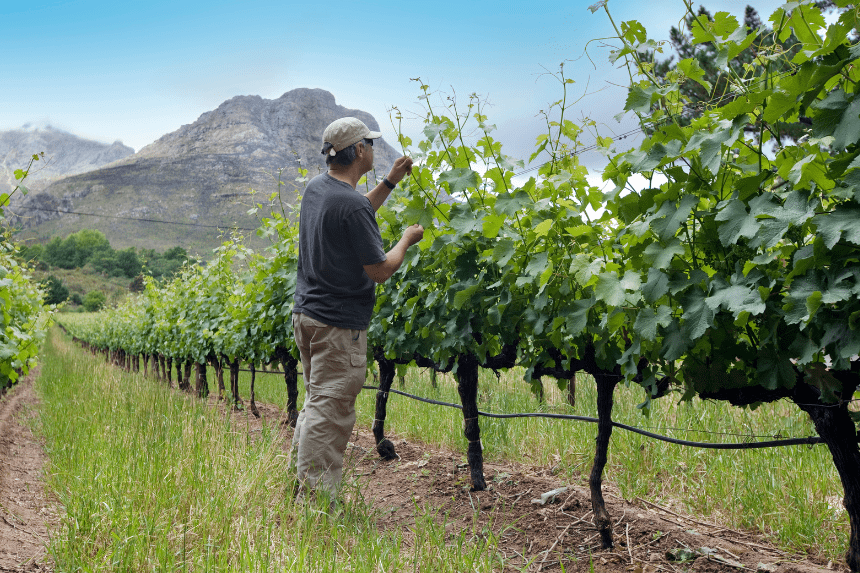The proposal for land reform in South Africa, especially the plan to expropriate land without compensation, has restarted discussions around racial justice, economic equality, and national control. Even though the policy was initially meant to deal with the ills of apartheid, former U.S. President Donald Trump sharply criticized it. He increased tensions by talking about the danger, and experts note that this crisis was likely overdone and had political reasons. It shows how actions by a government on things like race and ownership can antagonize foreign nations, leading to strong reactions. The article dives into what sparked the controversy, the things that happened during the reform, and why it’s important around the world.
- Why Does South Africa’s Land Reform Law Continue to Spark International Controversy?
- What Is the History Behind Land Inequality in South Africa?
- How Does the Proposed Land Reform Work?
- Why Did Donald Trump React to South Africa’s Land Reform?
- Is There Any Truth to the Claims of Violence and Farm Seizures?
- What Are the Economic Stakes in This Debate?
- Could South Africa’s Land Reform Serve as a Global Case Study?
- What Does This Mean for South African Citizens?
- How Should the International Community Engage with South Africa’s Land Debate?
- Final Thoughts: Can Justice and Economic Growth Coexist?
Why Does South Africa’s Land Reform Law Continue to Spark International Controversy?
The country’s land reform law, which targets the inequality from past apartheid land ownership, has led to much internal debate. When Donald Trump spoke out, what had been a U.S. debate became a global issue. What he said led to national and international disagreements, changing a domestic issue into an important worldwide concern. The main focus here is on expropriating land without giving owners compensation, which is an ambitious and complicated issue. The essence of the movement lies in its attempt to give back land to Black South Africans, who were illegally taken from them during colonial and apartheid times. Despite all of this, the criticism by Trump and the international community, mainly over tariffs, has turned the economy into a major cause for people’s anxiety about the economy and politics. What is causing this massive outrage?
What Is the History Behind Land Inequality in South Africa?
South Africa’s land ownership patterns started with long-lasting racial exclusion. In colonial times and under apartheid, Black South Africans lost most of their land, which was given to white settlers. In 1913, the Natives Land Act was formed, which stopped Black people from buying land in the majority of the country. So, white South Africans — now less than 10% of the population — owned most of the private farmland.
Following the end of apartheid in 1994, the new government promised to act. Unfortunately, land reform measures have not always advanced quickly because of various bureaucratic difficulties over the years. When the population without rights became more frustrated, they wanted the government to put more powerful reforms into action. That is how talks began about changing the constitution to allow expropriation without paying for the land.
How Does the Proposed Land Reform Work?
South Africa’s present plan for land reform gives the state permission to take land without paying, especially if it is unproductive, abandoned, or was acquired unlawfully during apartheid. The government claims that this process speeds up sharing the benefits and promotes economic fairness.
While critics think this approach could make investors reluctant to invest, lower food production and lead to economic instability. Some people believe it is needed to fix long-standing racial injustices. People feel more strongly about this debate since the plan is to spread benefits by giving some parcels to those who have been disadvantaged, rather than to everyone. Read another article on South Africa–US Relations Tensions
Why Did Donald Trump React to South Africa’s Land Reform?
After reports that white owned farms in South Africa are being seized without compensation, Trump got involved. He said the country would look into the issue, talking about the concerns over many murdered farmers. This caused a lot of anger in South Africa, and officials called it unfair and connected to white supremacist beliefs.
Because of Trump’s remarks, the discussion about South Africa became more about international relations than about South Africa’s governance. People believed his statements made the issue seem much easier to understand than it is. Analysts stated that his statements were focused on meeting the needs of some groups for electoral influence rather than being concerned about human rights.
Is There Any Truth to the Claims of Violence and Farm Seizures?
The part of Trump’s speech that people found most divisive was his claim that many white farmers were being murdered. Even though farm attacks occur in South Africa, they do not only happen to white farmers—they are part of the general crime situation in the country. There isn’t any solid proof of a race-based attack against white landowners.
While there have been a few such cases, they have not happened in large numbers. According to the South African government, all land reform projects have to respect legal and constitutional rules. In Parliament, the proposed constitutional amendment has been openly discussed, and members of the public have given their ideas. It demonstrates that the process is nothing like the messy land confiscations reported during Zimbabwe’s land reform process.
What Are the Economic Stakes in This Debate?
Owning land brings benefits for justice and the economy. Focusing on land inequity in South Africa helps millions of Black residents escape poverty and build firmer economic prospects. Since land is an important resource, access to it is needed for economic mobility by many.
But the issue is how to make sure justice does not threaten economic formation. Both the economy and the job market in South Africa are strongly affected by the agricultural industry. Local and international investors are staying informed. If investors believe the process is unstable and influenced by politics, it might reduce investment and slow the economy. If land reform is done in a way that is clear and legal, it could help rural areas and reduce inequality for a better future for everyone.
Could South Africa’s Land Reform Serve as a Global Case Study?
Other nations, similar to South Africa, are experiencing the same thing. Many nations that were colonized in the past now have the same problems with land ownership. The way South Africa tries to address the issue is by following its democratic system and using constitutional methods. In case it succeeds, it could be an example for others striving to do land reform while avoiding both economic decline and disruption.
So, it makes the situation more serious. People around the world are monitoring land reform, not only to learn if it is possible, but also if it is done properly. Even though Trump’s comments add to the noise, South Africa’s route to healing its past is independent and its own.
What Does This Mean for South African Citizens?
To the typical South African, the issue of land represents dignity, chances, and ownership. Rural or informal settlement residents want promises to be kept, but what they truly want is to use land for farming or starting their businesses. How fairly and effectively the government carries out land reform could rewrite the economy and help unify the nation.
At the same moment, landowners have worries about the security of their properties and rights going forward. Any problem that disrupts the work of commercial farmers could have major effects on food security. Because of this, having clarity, communication, and following the law is important for future progress.
How Should the International Community Engage with South Africa’s Land Debate?
The world community should get involved, but to help, not take control. Organizations and nations that have experience in land reform can give technical help, financial backing, and policy input. Yet uninvited political statements just broaden differences and take attention away from constructive discussion.
South Africa is trying to address past injustices using democracy, which is an admirable effort. Any actions must be led by South Africans, and external partners must honor the country’s autonomy and assist with peaceful, just, and effective land reform.
Final Thoughts: Can Justice and Economic Growth Coexist?
Taking land from one group and handing it over to another group is not how South Africa’s land reform works. The idea is to reform society so that the past is acknowledged and a fairer future is developed. The process takes a long time and can be complicated, and errors could cause serious problems. When the rule of law, transparency, and open talks about different views are followed, society can enjoy both justice and prosperity.
How often the topic appears in the news is proof of its power to influence situations and inspire change. Land reform deals with identity, heritage, finance, and influence. This policy becomes a way for South Africa to restore unity among its people. The way the world chooses to react, judge, or stand together will determine the result.








